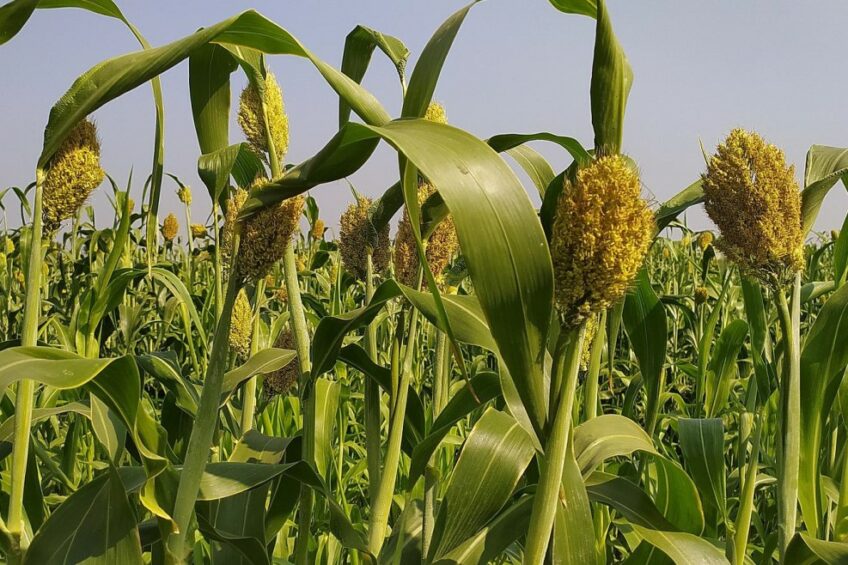Several experts have warned that South Sudan’s fight against hunger will remain an uphill challenge unless urgent steps are taken to adapt farming to a changing climate.
Speaking during a public lecture at the University of Juba, agricultural specialists and development partners said climate-smart practices, research, and youth-driven innovation are key to building resilient food systems in a country where floods, droughts, and economic instability continue to threaten livelihoods.
The lecture, organized by Welthungerhilfe (WHH) in collaboration with the University of Juba, brought together students, lecturers, and development practitioners to discuss ways of strengthening South Sudan’s food systems amid rising climate threats.
Makenzi Masocha, an agriculture and rural development expert with WHH, said there is a need to prepare for climate shocks.
“Climate-smart agriculture is very relevant to the context of South Sudan because we have been grappling with floods since 2019,” he said. “These shocks have destroyed productive lands and displaced communities. We need to keep raising awareness and preparing people to anticipate and act early to protect their livelihoods.”
Masocha emphasized that South Sudan’s agriculture cannot be transformed without linking academic research with on-the-ground practices.
“Without the right skills like sustainable farming practices, we cannot counter the negative effects of climate shocks,” he said. “We are training communities to identify suitable crop varieties, conserve soil moisture, and use local innovations that protect their land.”
“Academia are centers of innovation, and by connecting what’s taught here to what’s happening in the field, we can produce graduates who not only understand the science but can solve real agricultural problems,” Masocha added.
For her part, Ania Okinczyc, WHH’s Country Director, called for unified efforts to address the growing food insecurity crisis.
“The insecurity in South Sudan and the resulting food insecurity are a pressing challenge. Climate change, political instability, and displacement all contribute to this situation,” she said. “It calls for all of us development partners, academia, and government to work together to ensure sustainable, nutritious, and accessible food for everyone.”
According to Okinczyc, institutions like the University of Juba play a crucial role in addressing food security challenges.
“Through research, innovation, and collaboration, universities can help identify sustainable agricultural practices and improve nutrition outcomes,” she stated.
The lecture gathered students, who expressed their desire to take part in the country’s agricultural conversion.
“Agriculture is everyone’s responsibility,” said Meling John Abdalla, a fifth-year Agricultural Science student at the University of Juba. “It is not just for those studying agriculture; food security affects all of us. If each of us does something, even small, it helps build a better future.”
Abdalla, who runs a small vegetable garden in Luri, described the everyday struggles faced by young farmers, saying that during the dry season, they depend on streams that dry up.
“Buying irrigation pipes is too expensive and sometimes, we face insecurity when armed pastoralists come to our farms demanding food or money,” he lamented.
Meanwhile, Arol Deng, a student at the Faculty of Agriculture, said that despite the challenges, young people must not give up.
“We know the challenges of floods, droughts, and insecurity, but we can’t wait for others to fix them,” he said. “Even a small garden or community project makes a difference. Youth have to be part of the solution.”
For WHH, the University of Juba lecture is part of a broader push to connect academic institutions with real-world agricultural challenges.
“We want to create a bridge between universities and the communities we serve. When students understand the realities farmers face, they are better prepared to innovate, and when farmers learn from researchers, they can improve productivity sustainably,” Masocha said. “If we fail to reduce food insecurity, the consequences will be severe. We want every child in South Sudan to go to bed with food. Food is not a privilege; it is a right.”
Despite the grim statistics with millions facing food insecurity each year, experts at the lecture remained optimistic that collaboration and innovation can turn the tide.
The event was held as part of World Food Day commemorations, aimed to bridge the gap between academic research and community practice, while encouraging young people to take a leading role in advancing sustainable agriculture and resilient livelihoods.




